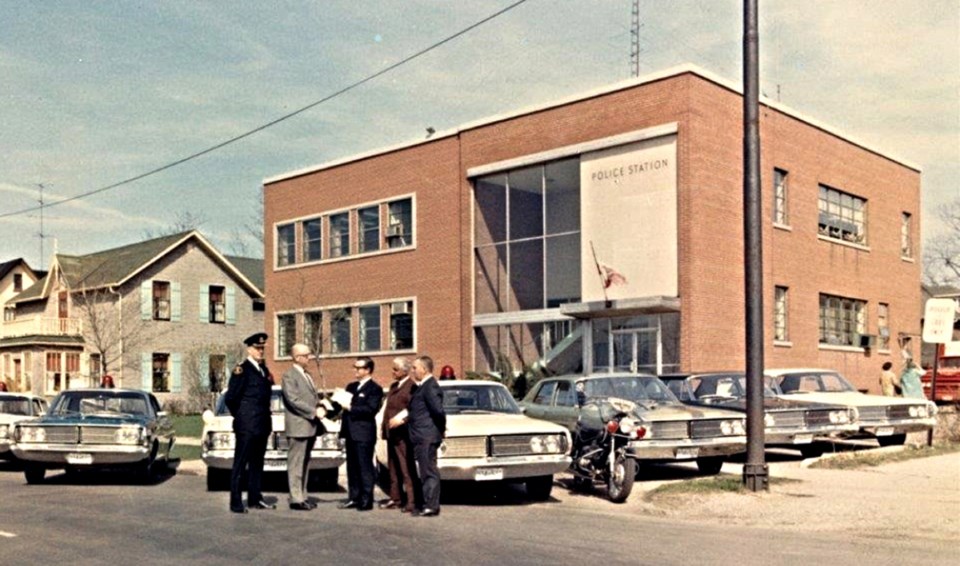Phil Egan
One evening in 1962, three frightened girls gathered up their courage and made their way from the former Village of Blue Water to the Sarnia police station, then located on Front Street.
They were there to report sexual abuse.
Two things made their story especially disturbing. The girls were aged 11 to 13. And their abuser was a trusted parish priest.
In 1962, Blue Water was a village of 575 homes and 26 businesses that had sprang up during and after construction of the Polymer synthetic rubber plant 20 years earlier. Populated largely by French-Canadian families, it had its own Roman Catholic Church and a school, St. Thomas Aquinas.
Father Charles Sylvestre was the church’s charismatic, 40-year-old pastor, popular and beloved by his parishioners.
But on that terrible evening in 1962, when the girls confided in Constables Jeff Hambly and Jack Latimer about what the priest was really like, they had nicknames for him: “Father Feeler” and “Sylvestre the Molester.”
A Sarnia police report detailing specific accusations of sexual assault was sent to the Roman Catholic Diocese of London, to the attention of Most. Rev. Bishop John C. Cody.
Fr. Sylvestre was removed from the Blue Water parish, transferred to Montreal, and sent on a clerical leave of absence for several months to a contemplative retreat. In 1962, when a priest molested a child he was believed to have suffered a “moral failure,” often linked to alcohol. Prayer and reflection were the cure.
An investigation of the girls’ complaints was initiated by Sarnia Police, but suspended when Sylvestre was transferred to Quebec. Police believed the Church was dealing with the problem.
The police report went into a filing cabinet in the Diocesan offices in London, where it lay buried.
But it didn’t end there.
The Church sent Sylvestre back to Ontario and gave him a succession of new parishes: Delhi, London, Windsor, Chatham and Paincourt. As he travelled from parish to parish, the monster first reported in Sarnia in 1962 continued to destroy young lives – breaching his own faith and the trust of young lives placed in his care.
By the time he was finally brought to justice in 2006, Sylvestre had abused 47 girls – or at least that’s the number he admitted violating. Many others may not have come forward.
When Sylvestre’s crimes went public, the Diocese of London proclaimed it was unaware of his activities, and on that premise paid victim compensation.
But a few years ago, the 1962 Sarnia Police report was found in a filing cabinet in the Diocesan offices and released to the media by a whistle-blower. Sylvestre’s victims say that report not only proves the Diocese knew he was unfit; it negligently turned him loose to prey upon unsuspecting children for another 43 years.
One victim, assaulted in 1973, has launched a new legal action against the Diocese that’s based on exactly that principle. The Sarnia Police report is a key piece of evidence.
Irene Deschenes, 57, says the abuse she suffered at the hands of her trusted priest stained her childhood and still torments her today. And the legal delays the Diocese is employing now against the new lawsuit are “cruel and worse than the original abuse,” she said.
In the Bible, Matthew 18:6 tells Christians, those who “shall offend one of these little ones which believe in me, it were better for him that a millstone were hanged about his neck, and [that] he were drowned into the depth of the sea.”
Some believe Father Charles Sylvestre, who died in prison in 2007, is discovering the truth of those words in a tormented afterlife.
